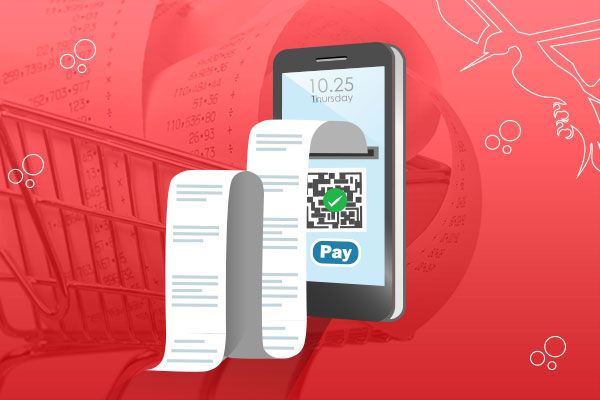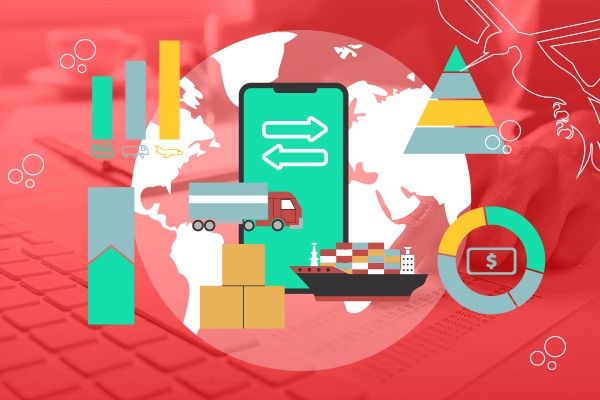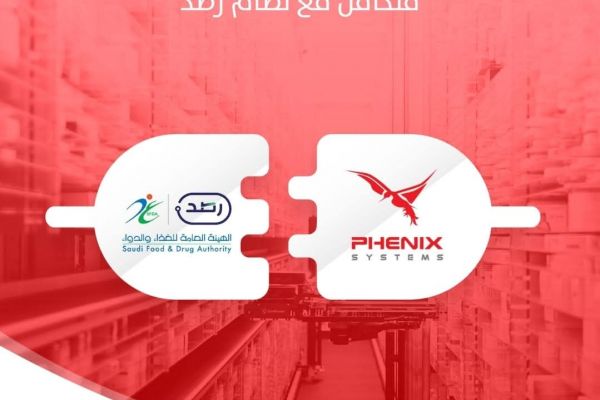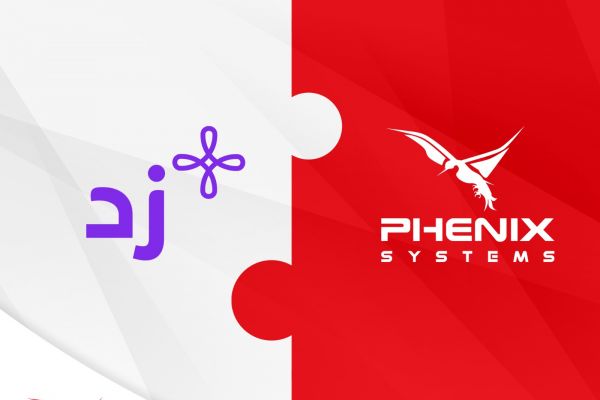The term electronic invoicing has spread among merchants in recent times, and many major financiers have joined that system to keep up with technology and move towards the world of digital dealings, and in response to the tax authority decisions of many Countries.
What means electronic invoice?
The Zakat, Tax and Customs Authority defined the electronic invoice as: "An invoice issued and preserved in electronic form is organized through an electronic system and contains the requirements of the tax invoice, and a handwritten or scanned invoice is not considered an electronic invoice."
The General Authority for Zakat and Income defined it as: "A tax invoice issued in electronic form is organized through an electronic means, a paper invoice that is converted into electronic form by copying, scanning or any other method shall not be considered as an electronic invoice for these Regulations."
Others defined the electronic invoicing as "A digital document proving dealings in the sale of goods and services. This document has components and characteristics, is prepared, signed electronically, sent and received through the electronic invoicing system and with the knowledge of the financier."
Through previous definitions, we can define an electronic invoicing as: "It is a digital (electronic) document, which helps to easily save and exchange data to prove dealings for the sale and purchase of goods and services to get rid of paper dealings, and which can be reviewed and verified immediately by the tax authority.
What are the characteristics of the electronic invoicing?
The electronic invoicing system has many features and advantages, most notably:
-
Unified form and content of the invoice:
It is a standard document with components, form, design, and content that have been identified and regulated by laws and regulations for making the electronic invoice according to the requirements of special businesses.
-
Electronic signature:
Electronic invoicing requires the need for a valid and effective electronic signature of the source of the invoice. The system provides full security for the billing data exchanged among companies and ensures that the legal argument is established for users of the system.
-
Commodity Code:
Reliance on a uniform code system for goods and services adopted by the Tax Authority, specifications, and periodic review.
-
Instantaneous notifications:
the system allows instantaneous notifications to both the seller and the registered buyer of the electronic invoicing system and their sharing of invoice data. Invoices are shared by all the means offered by the system such as web service, SMS, emails, and mobile applications. Invoice data can be saved, reviewed, and printed.
What is the role of compaines (phenix system) in integrating with the electronic invoices system?
-
Integration with the technical solution:
The system allows linking it to any enterprise resource planning (ERP), This integration is achieved using a range of application programming interfaces (APIs), and a toolbox Software Development Kit (SDK).
-
Electronic signature:
extract the company's e-signature certificate, implement the steps of electronic signature integration with the system, and sent it to the tax authority, the financier provided a hardware security module (HSM) for the computer and its installation on the company's electronic systems (ERP) to sign invoices electronically before they are sent to the system.
-
Code system:
Processing of a statement of the code used by the financier in the formation of goods and services, whether based on the global language of business (GS1) or the internal code system linked to the commodity group classification system (GPC), or both and sending this statement to the tax authority in digital form.
What Benefits to financiers after the application of an e-invoice system?
Short-term benefits:
-
Verify the authenticity of the parties' invoicing elements and data before issuance.
-
Strengthen the company's tax position by classifying it as a low-tax risk company.
-
-
Facilitate settlement procedures for value-added tax (VAT).
-
Update and develop the method of exchange of invoices between companies.
-
Facilitate external audit procedures for the legal accountant to prepare financial statements.
-
Help the company to make accurate reports and analyses as soon as possible and with minimal effort to present them to stakeholders and decision-makers.
-
Long-term benefits:
-
Electronic invoicing reduces administrative burden, reduces transactions, and the need for paper invoices.
-
Reduce the company's examining procedures with the possibility of remote examining.
-
Facilitate tax reimbursement procedures.
-
Termination of traditional invoice processing.
-
Effectively assist in integrating the informal economy, tightening the tax community, and achieving justice in the tax authority.
-
In the interest of digital transformation and its automation, many Arab countries have taken, such as Egypt, which is considered the first country in the Middle East, Saudi Arabia, the United Arab Emirates, and Syria, which implement the electronic invoice system and focus on the establishment of a centralized electronic system to receive, review, approve and follow up on sales and purchase invoices for business transactions between companies through the instant exchange of digital billing data without relying on paper transactions to account for the tax community.
-
How do financiers handle the electronic invoicing system?
Each financier within the electronic system has a digital file through which they can deal with the tax authority; The file contains all the required data such as company name, address, etc. Each company has a group of commissioners who apply the electronic invoicing system.
-
What is the financier and who is the Commissioner?
The financier is the person who has to pay the taxes charged. The Commissioner is the person responsible for registering the financier in the electronic invoicing system to pay taxes and tax checks easily. The company can authorize more than one person to deal directly with the tax authority.
-
Should financiers know and do the registration steps themselves?
The financier should not know the steps of registration nor do the registration process himself, as the Commissioner carries out this task.
-
Is it time to start using the electronic billing module in your company's POS system?
Yes, companies that do not join the e-invoice system will be excluded from the Senior Financiers Center, and transactions between state institutions and companies that did not join the e-invoice system will be completely discontinued.
-
Should small and micro companies join the e-invoice system?
There is no firm information on the answer to this question because the tax authority has not announced a statement concerning small and microenterprises.
-
Are there other countries starting to apply electronic invoices?
Yes; Several countries have started to apply the consolidated invoice system same time as India, Turkey, and other countries.
-
Is (ERP) a condition for joining the e-invoice system?
The existence of (ERP) is not a condition for joining the electronic invoice system.
-
What is the importance of (ERP) software with an e-invoice system?
Integration of (ERP) software and e-invoice system allows invoices to be sent at the same time as their issuance, thereby providing a lot of input, review, and data export steps, as the two systems, are integrated using a set of (APIs), and this integration allows easy transfer of data from the company to the tax authority with ease.
-
What is the role of ERP software in the electronic invoicing system?
There is no relationship between companies that provide ERP services and the tax authority, software companies do not play a supervisory role over financiers, but rather provide ERP services to organize work on the electronic invoice system and achieve a high level of operational efficiency for faster business delivery and instantaneous invoice production through the integration of the two systems.
-
Can electronic invoices be canceled?
The electronic invoice system is characterized by the possibility of canceling any invoice issued. The seller can cancel the invoice within a period not exceeding three days. By requesting the vendor to cancel the invoice on the system invoice, the buyer receives notice of invoice cancellation and, if he agrees to this procedure, the invoice is canceled and if the buyer refuses to cancel the invoice, the system does not use the seller's request and the invoice is treated as a valid document.
-
How to enter invoices when a malfunction occurs in the electronic invoicing system?
In the event of any internal failure in the electronic invoicing system, companies can then raise invoices for the downtime resulting from the failure in the form of a consolidated invoice payment by the period prescribed by law.
-
Is the customer allowed to reject the invoice after receipt?
The customer has the right to reject the invoice after receipt, for only three days from the date of issuance, after which this option expires, and the issuer of the invoice is also entitled to cancel it in case of an error for example or otherwise.
-
What is an electronic signature?
It is the electronic alternative to the financier's official written signature and takes the form of an encrypted message, it is a necessary step to establish the credibility of electronic invoices dealing with the tax authority to provide the highest level of security and assurance of the signatory's identity. No person can fake the signature or the values contained in the signed invoice, thus, many sales can be made electronically easily without the need to manually attendance and sign people.
-
What is the importance of the uniform code system?
To achieve States' full vision and orientation towards digitization, the tax authority has confirmed the application of the standardized coding system to enable access to the electronic invoice system; The system operates through the (GS1) and internal code systems. The importance of the unified code system lies in the possibility of following up on goods and knowing the extent of their demand. The appropriate plans can be made for the subsequent purchase of those goods and the ease of dealing with customers using them.
What are the technical requirements of the electronic invoicing system?
-
(ERP) Enterprise Resource Planning
-
(APIs Application Programming Interface)
-
(SDK) Software development kit
-
(GS1) The Global Language of Business
-
(HSM Hardware security module)
-
(GPC) Global Product Classification
-
Value-added tax (VAT)







Comments (0)